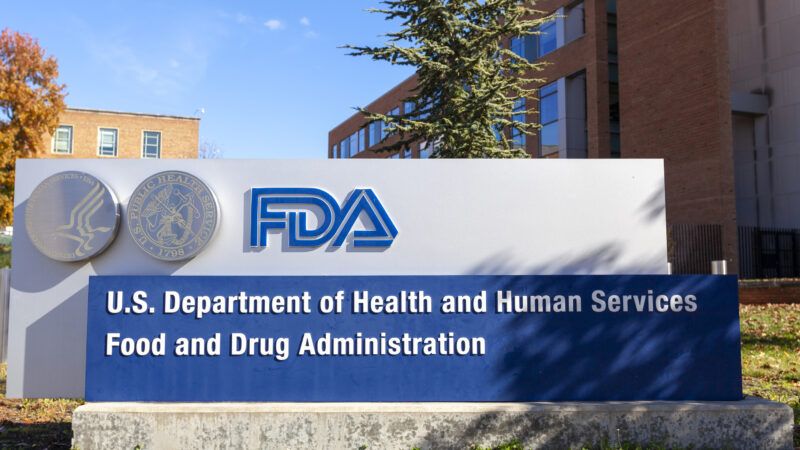Federal Court 'Vacates in Its Entirety' the FDA's Costly and Onerous Lab Test Rule
RFK Jr. should accept the ruling and instruct the agency to immediately halt all efforts to regulate laboratory-developed and in vitro tests.

A federal district court has struck a blow for medical innovation and patient empowerment by overruling the Food and Drug Administration's (FDA) misbegotten effort to regulate laboratory-developed (LDTs) and in vitro testing.
LDTs are diagnostic in vitro tests for clinical use that are designed, manufactured, and performed by individual laboratories. They can diagnose illnesses and guide treatments by detecting relevant biomarkers in saliva, blood, or tissues; the tests can identify small molecules, proteins, RNA, DNA, cells, and pathogens. For example, some assess the risks of developing Alzheimer's disease, detect the presence of cancers, or guide the treatment of breast cancer.
Last May, the agency adopted extensive new rules aimed at regulating those tests for the first time. This is the same agency whose bureaucratic acumen in 2020 massively screwed up COVID-19 diagnostic testing as the pandemic rolled in.
As I reported at the time, out of the billions of tests given annually, the FDA sought to justify imposing its burdensome oversight by citing problematic medical device reports and unconfirmed "allegations" for a grand total of nine and four different tests respectively between 2009 and 2023. The remaining examples cited by the FDA are tests that had actually been submitted to the agency for analysis and were subsequently rejected or revised as recommended.
Various clinical and professional organizations including the American Clinical Laboratory Association (ACLA) and the Association for Molecular Pathology (AMP) strenuously opposed the FDA's regulatory overreach. Subsequently, they sued the agency in U.S. District Court for the Eastern District of Texas. Now, Judge Sean Jordan has ruled in favor of the laboratory representatives, setting aside the case "in its entirety" and remanding the matter to the secretary of Health and Human Services (HHS), now Robert F. Kennedy Jr., for further consideration.
In his opinion memorandum, Judge Jordan pointedly notes that the FDA actually admits that administering its new LDT regulatory scheme would be costly and slow.
FDA recognizes that the final rule will impose major burdens on laboratories. In fact, the new requirements will initially affect about 79,114 existing tests offered by 1,181 existing laboratories. AR318. Going forward, it will continue to affect about 10,013 new tests every year. The final rule also substantially increases FDA's workload. Even assuming that FDA will adhere to its non-binding enforcement discretion policies, FDA estimates that it will need to review an additional 103 premarket applications, 1,090 premarket notifications, and 267 de novo classification requests each year—an across-the-board increase that includes more than doubling the number of premarket applications subject to review. FDA estimates that the compliance costs for laboratories will total well over $1 billion per year. Over the next two decades, FDA projects that total costs associated with the rule will range from $12.57 billion to $78.99 billion.
Without going too deeply into the legal details, Judge Jordan accepted the industry arguments that the existing Clinical Laboratory Improvement Amendments (CLIA) had established the appropriate and adequate system for regulating the quality, safety, and efficacy of LDTs and that the FDA has no statutory authority over LDTs.
"The court's ruling ensures that clinical laboratories can continue to focus on their primary mission—offering innovative and reliable diagnostics that save and improve the lives of millions of patients every day," said ACLA President Susan Van Meter in a press release. "This is a victory that protects patient access to critically needed testing services and removes burdensome regulations that would have undermined the clinical laboratory system in this country."
RFK Jr. should accept the court's ruling and immediately instruct the FDA to halt any further efforts to regulate LDTs and in vitro tests.


Show Comments (12)